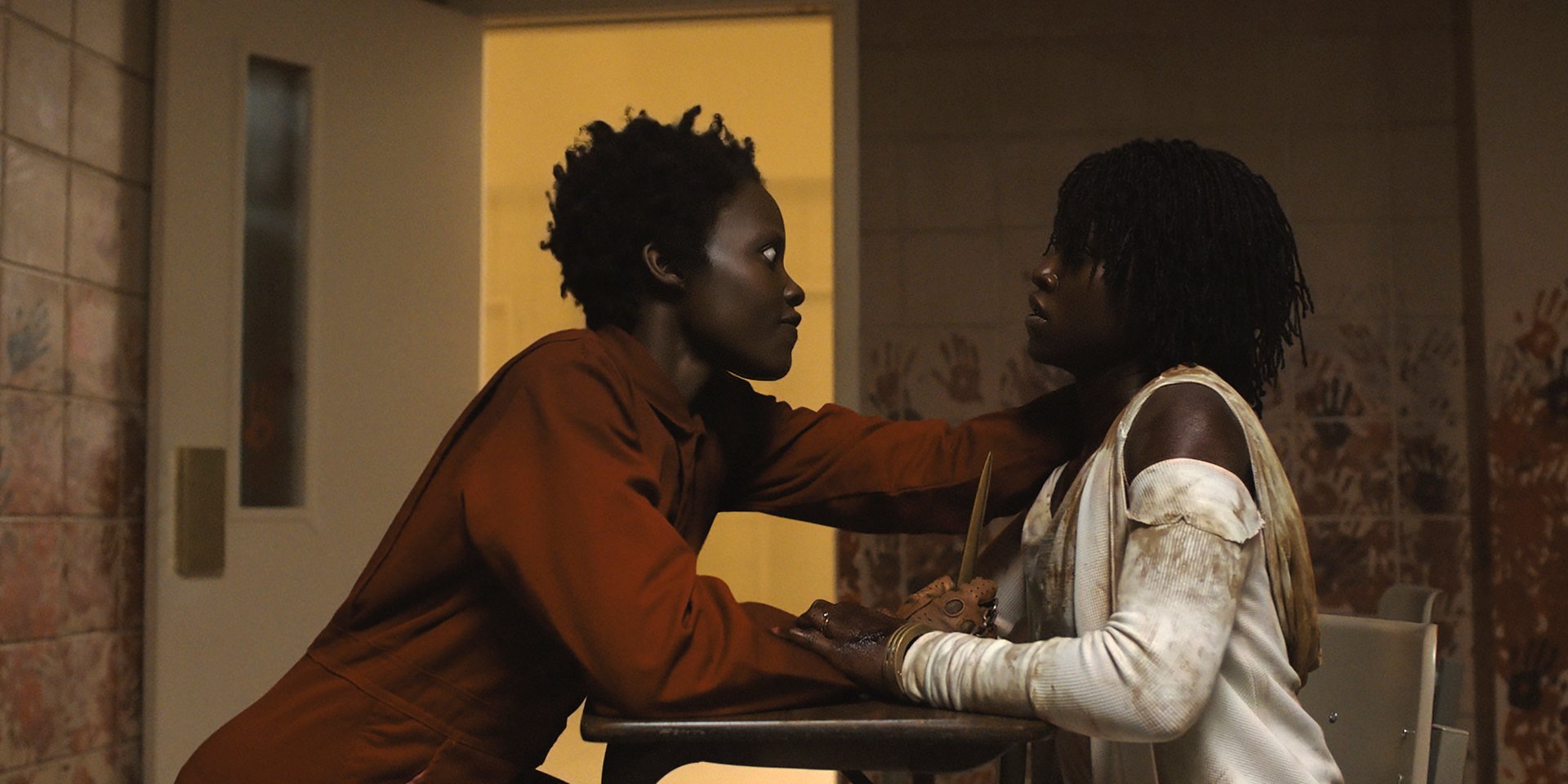Women have depth. We are multidimensional and valuable for more than just what we look like. But you wouldn’t know that from watching TV or movies today. If life was like film and TV, we’d all mostly be straight white cis ladies who all wear a size zero and are only allowed to talk about the men in our lives who coincidentally are also straight and white.
In Jordan Peele’s Us, Academy Award winner Lupita Nyong’o gives a masterclass performance while breaking all the stereotypes of what it means to be a woman, especially a black woman in film. The characters she plays not only have their own agency, but the duality of those roles show the depth and expanse of Nyong’o’s talent. It’s not a coincidence that a man of color, Peele created this world for Nyong’o to thrive, giving her the space to develop characters that are rarely shown in film. Us proves that when women and people of color get to tell their own stories, they are simply better.
From 12 Years a Slave to Black Panther, Nyong’o’s talent is undeniable. Which makes it even harder to believe that Us is the first major film where Nyong’o has the lead role. And it’s already breaking records. Us not only had the largest debut for an original horror film, with $70.3 million at the box office, it also had the largest opening weekend for a film headlined by a Black woman.
Us is about a family’s vacation gone wrong — with the family’s “evil” doppelgängers finding and terrorizing them. Winston Duke plays the lovable and slightly dorky dad Gabe, and Shahadi Wright Joseph and Evan Alex playing the daughter and son, Zora and Jason. Nyong’o plays the mother, Adelaide, who is determined to keep her family safe. And in a surprising twist, Adelaide’s double, Red, who shares one of her earliest and most traumatizing childhood memories.
What’s so impressive about Nyong’o’s performance is the distinct character she creates for both Adelaide and Red. Too often horror movies only give women sexy-scream-run-die roles. These are the roles that mostly involve being scared, making stupid decisions, dying almost always a gruesome death — all the while highlighting the woman’s sexuality. We all know there are many films that spend more camera time on a woman’s cleavage than on actually developing her character. In horror films misogyny is even more terrifying, when oftentimes female characters experience violence and brutality at the hands of male antagonists creating a cultural narrative that conflates sex with violence. And in old horror slasher movies, it’s even worse for black women who often die first if they’re present at all. (Spoiler: white people die first in this movie)
In Us, Nyong’o breaks gender and racial stereotypes, giving us characters with full narratives that Hollywood has historically denied Black women the opportunity to create. Nyong’o depicts Adelaide as a woman with a history of fear and darkness she has kept from her family. This background gives Adelaide the room to build a narrative distinct from her role as a mother and wife. I mean how many times have we seen mothers in movies that are given the freedom to have meaningful, separate life experiences from marriage and children? Adelaide is the leader of her family and guides them through the darkness as they become dependent on her for survival. Then there’s Red, Adelaide’s double that Nyong’o creates as a twitching-unsettling figure with wide enveloping eyes who was previously relegated to Adelaide’s nightmares. Red’s voice, ticks, and eyes look as if they were constructed by Adelaide’s subconscious to show the scariest version of herself.
How Nyong’o builds the relationship between Red and Adelaide is most impressive. Building off childhood memories and flashbacks, the audience is slowly able to connect the dots between the two characters as Nyong’o uses facial cues to bring the audience with her. Nyong’o transforms a character who might be a terrifying zombie-like-figure looking for revenge into something more terrifying — a deep look into one’s self and subconscious. Together, Red and Adelaide show us that sometimes the greatest thing we should fear is looking in the mirror.
Us is a masterpiece thanks to Nyong’o filling the canvas — she leaves you haunted by the depth and nuance of the characters she portrays. She’s the rare woman on screen who’s scared and terrifying, strong and weak, emotional and stoic — unable to fit in any of the boxes society has tried to put her in. These are the characters women, especially women of color, deserve to play. Through Nyong’o, we are taken on a journey of one women’s life, one that doesn’t start at marriage or when she becomes a mother, but is rooted in her personhood. It’s a terrifying journey, and one that will not only make the audience look inward, but also ask why we waited so long for a woman-centered film like this. In Us, Lupita Nyong’o gives women, on screen and off, permission to be scary. Because if there’s one thing I know about women: “If you want to get crazy. We can get crazy.”

